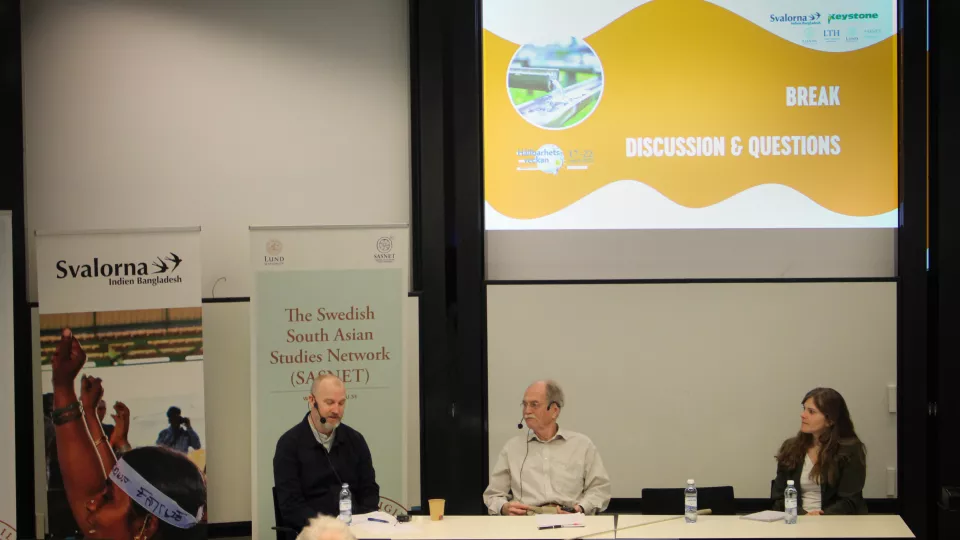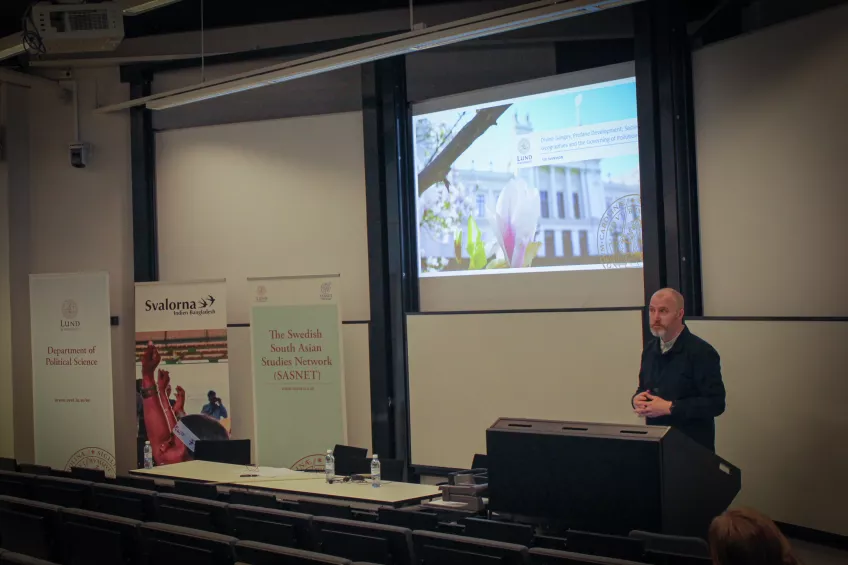The symposium took place at Eden Lecture Hall and was organised in accordance with the Sustainability Week in Lund and brought together three different perspectives on sustainable water management.
SASNET Director, Ted Svensson, presented a research project that he is presently involved in: “Divine Ganges, Profane Development: Sacred Geographies and the Governing of Pollution”. He described how the project, so far, has confirmed that people varyingly attribute religious and secular conceptions to the Ganges/Padma. These conceptions, in turn, have implications for the sustainable management of the river:
- It affects environmental attitudes and state attempts to control, make use of, and clean the river. It is also the case, however, that even those who approach the river from a more secular perspective ascribe it with qualities that go beyond how humans relate to and impact on it, Ted Svensson describes.
Other speakers during the symposium included Jyotsna ('Jyoti') Krishnakumar, Director at Keystone Foundation, who spoke about “Sanitation and Urban Water Management in India” and Peder Hjorth, “Water Supply - Struggles in Sweden”. The symposium concluded with a panel discussion, in which the participants discussed challenges and tensions in the field of water management, from a Swedish and Indian/Bangladeshi perspective.

